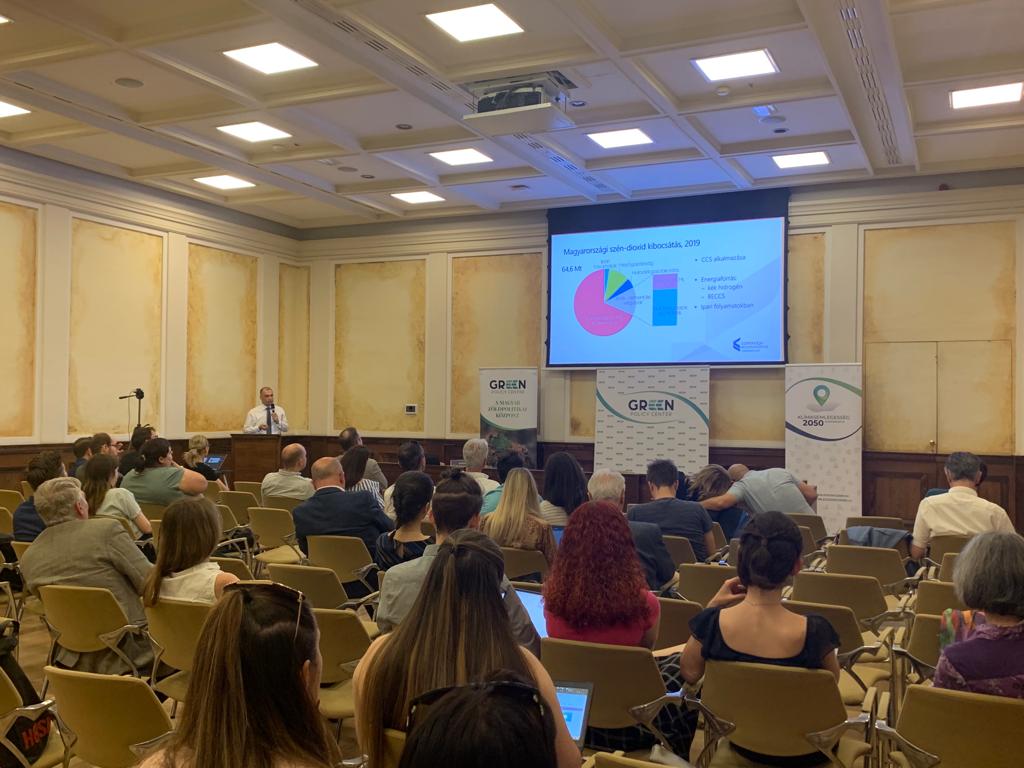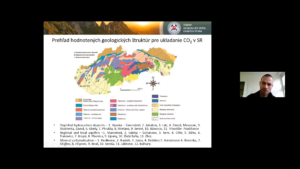János Hidi, Head of Sustainable Investments at Cambridge Econometrics Central Europe, was one of the speakers during the “Climate-neutral Hungary 2050” conference which took place in the beginning of June in Budapest. The event was organized by the Green Policy Center in cooperation with the Equilibrium Institute of Budapest. At the same time, it was the first of the national seminars of the CCS4CEE project, launching the national policy roadmaps foradvancing CCS in Central and Eastern Europe.
János Hidi introduced the CCS4CEE project, the main partners involved as well as the project work carried out for Hungary. He described the CCS technology and the global context for full decarbonisation in which CCS plays a crucial role, especially for hard to decarbonize sectors. He presented the emission figures for Hungary, highlighting the role of steel, cement and chemical sectors in both energy–related and process emissions. János Hidi also described the possible CCS-related solutions to address this problem, including capturing and storing process emissions, but also enabling blue hydrogen production and bioenergy with CCS(BECCS). He talked about the Hungarian stakeholders, and their roles and interest in the CCS landscape. Finally, the main findings from the stakeholder interviews and workshopconducted in the CCS4CEE project were highlighted.
Main conclusions
In order to have CCS solutions implemented in Hungary, there will be a need to refine the legislation, and set up a regulatory framework which is supportive for CCS, including incentives and state funding. Coordination at a national level is also needed – it should be carried out by a dedicated governmental organization. The theoretical potential to store CO2underground in Hungary is large, but geological surveys should be carried out to provideenough evidence on storage capacity. On the demand side, green certificates should be introduced to support buyers who are willing to pay a higher price for products that are produced using low-carbon technologies.



